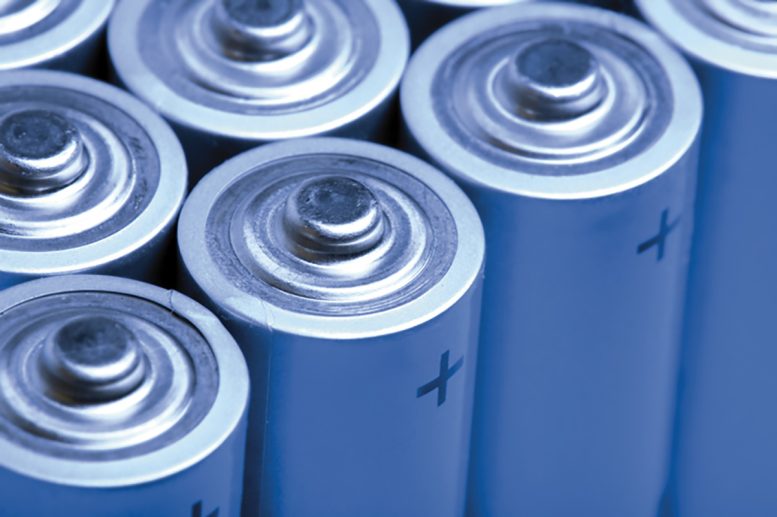
Researchers have advanced Na-ion battery technology by developing fast-charging capabilities and enhancing the negative electrode with organic materials, reducing reliance on rare, non-European materials. Additionally, they’ve improved the cathode, creating a high-energy, fast-charging, cobalt-free material that lasts longer due to its gradual structural change during use. Credit: TU Delft
Researchers at TU Delft have created a battery that uses fewer critical materials, charges rapidly, holds a significant amount of energy, and has a longer lifespan.
A paper was recently published in Nature Energy by Marnix Wagemaker and Alexandros Vasileiadis in collaboration with researchers from the Chinese Academy of Sciences, on fast-charging Na-ion batteries and improvements made to the negative electrode. These can be made from organic materials. This reduces the dependence on rare materials that do not come from Europe.
Plus point: cathode also improved
The Delft researchers have also improved the other side and published about it. This research was recently published in the journal Nature Sustainability. Fast-charge high-voltage layered cathodes for sodium-ion batteries detail the development of a new positive electrode, based on design principles they published in Science in 2020.
From these design principles, a material has been designed that combines the best of two possible structures: the high energy density is combined with fast charging. As an added bonus, the material appears to change its structure very gradually during charging and discharging, making it last even longer. It also contains no cobalt as is still common in Li-ion cathodes.
Next steps
Thanks to the growing knowledge about these battery materials the third Growth Fund project sustainable battery technology the next step will be prepared. In it, in addition to Li-ion batteries research, Na-ion research will also be addressed nationally. The battery research will be further expanded, allowing this technology to be applied to national and European markets.
References: “Fast-charge high-voltage layered cathodes for sodium-ion batteries” by Qidi Wang, Dong Zhou, Chenglong Zhao, Jianlin Wang, Hao Guo, Liguang Wang, Zhenpeng Yao, Deniz Wong, Götz Schuck, Xuedong Bai, Jun Lu and Marnix Wagemaker, 15 February 2024, Nature Sustainability.
DOI: 10.1038/s41893-024-01266-1
“Origin of fast charging in hard carbon anodes” by Yuqi Li, Alexandros Vasileiadis, Quan Zhou, Yaxiang Lu, Qingshi Meng, Yu Li, Pierfrancesco Ombrini, Jiabin Zhao, Zhao Chen, Yaoshen Niu, Xingguo Qi, Fei Xie, Remco van der Jagt, Swapna Ganapathy, Maria-Magdalena Titirici, Hong Li, Liquan Chen, Marnix Wagemaker and Yong-Sheng Hu, 3 January 2024, Nature Energy.
DOI: 10.1038/s41560-023-01414-5
“Rational design of layered oxide materials for sodium-ion batteries” by Chenglong Zhao, Qidi Wang, Zhenpeng Yao, Jianlin Wang, Benjamín Sánchez-Lengeling, Feixiang Ding, Xingguo Qi, Yaxiang Lu, Xuedong Bai, Baohua Li, Hong Li, Alán Aspuru-Guzik, Xuejie Huang, Claude Delmas, Marnix Wagemaker, Liquan Chen and Yong-Sheng Hu, 6 November 2020, Science.
DOI: 10.1126/science.aay9972









Be the first to comment on "Charging Quickly and Lasting Longer – Scientists Develop Batteries That Require Less Rare Materials"